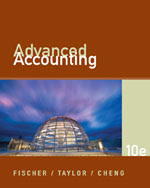
The Advanced Accounting textbook by Fischer/Chang/Taylor costs $195.99 on Houghton Mifflin’s website www.cengage.com.
Math textbook Finite Mathematics and Calculus with Applications 8e by Lial/Greenwell/Ritchey is $158.00 on Pearson Education’s website www.mypearsonstore.com.
English textbook The American Tradition in Literature (Volume 1) by Perkins & Perkins costs $91.25 and the second volume (because we know most classes require
the set) also costs $91.25 on McGraw-Hill’s website http://catalogs.mhhe.com.
What the F*@#! Why do textbooks cost so much money? After students or parents pay a hefty tuition/fees bill, giving another few hundred for textbooks would piss anyone off.
The anger heightens especially when buying a used book. If you go to your campus bookstore at the end of the semester to sell your books back, you get a measly fraction of the price that you originally spent on them. Then these same books are sold the following semester at an unreasonable mark-up.
For my first semester as a MFA student at George Mason I got off easy with a bill of $222.13. This is because I am receiving my MFA in Creative Writing and have to buy more paperback books than large textbooks.
There are a few reasons for these ridiculous prices, but after working in publishing I realized that it’s not so unreasonable and the publisher isn’t the one to always wave your finger at. (Ok, perhaps I downed the cult Kool-Aid® too easily and yes, I have learned from acquiring text permissions for an entire Technical Mathematics textbook that you do need to include trademarks hence the ®).
Although it may seem like weathering a financial meltdown to buy books after paying tuition, take a deep breath and consider how relative that expense is to the total price tag. You need these books to learn; you don’t need a freshman-fifteen inducing extra plus meal plan when the regular meal plan will do.
A sales representative once presented to us during a lunch-and-learn series. She basically answered the pricey textbooks question by turning it back on the student. Most students would not hesitate to buy the Wii or a new pair of designer jeans for over $100. We often spend money on overpriced shit every day but not everyone is complaining about the cost of their precious gaming systems or skinny-leg jeans.
Is this really how we value our education?
Reason 1. Most people forget, don’t know, or fail to recognize that textbook publishing companies are FOR PROFIT. These are businesses not NPOs or NGOs. In order to produce the books there needs to be a reason, and that reason is cash money.
A budget is planned for a textbook based on a sales forecast. Money is funded for the project and used in preparation (this includes getting reviewers, having focus groups, paying the author’s advance, etc.). Basically, money is allocated and spent before there is ever a finished product.
The anticipation of how much will be sold is based on crunching numbers between past edition sales (or like-book edition sales and market considerations if it is a first edition) and the budget (called the plant cost) to write, edit, manufacture, and market the book. A supply is determined with a variable demand.
Reason 2. Do you know who writes your textbooks? At the collegiate level the authors are professors hired to write by the Acquisitions Editor. At the secondary and elementary level for-hire vendors and in-house editors often work on writing revisions with the author team’s oversight. Yes, I have written text that will teach
Those professors who have “made it” with a successful brand/product receive a decent advance on subsequent editions and a fair percentage of royalties. But even the newbie authors get money at the risk their books will flop. So, while there is money being spent on the creation of the book, money also needs to be accounted for to pay the authors.
It’s not the authors fault though that the book is priced so high; it just so happens that they get paid for their smarts and labor of writing as they deserve to be paid.
The professors who are not authors might lack a bit of understanding. The collegiate level textbook publishing company gives away a lot of freebies. For marketing purposes, all of the Teacher Editions are given to professors at their request for free. Most of the supplements like Student Answer Books and Teacher Resource Manuals are also given away or as we say in the industry bundled with the main textbook.
The problem is professors are asking for more and more ancillaries and are ok with pinning publishers against each other. Well, Company A said they’d bundle an Interactive CD for free. So, the sales rep for Company B promises that this service can also be provided. Unsatisfied with a free Teacher Edition, professors will demand an Annotated Teacher Edition, customized because their course is special and so is their special university.
Well, with more free products being made, where do you suppose the money comes from to create these? Free is rarely free. Of course, the plant costs for these products are built into the total cost for the main textbook. Thus the cost of your textbook rises even if your professor is not the specific professor requiring all of this “free” stuff.
Have I mentioned that some professors have been caught taking their free Teacher Edition copies and reselling these online. Not only is this illegal because it’s basically stealing, but like with any other company that has to consider “loss” as well as “profit,” this also hikes up the price of your textbooks.
In fact, anytime a book is sold back used by a professor or student this is considered a “loss” and the publisher loses money. Hence, new copyright updates and editions are produced every 3-4 years in order to keep the business profitable.
Reason 3. If you thought publishing companies are located around a lake of fire with devious executives that have horns, really the publisher could be thought of as Beezlebub and the campus bookstore as the devil.
The publishing company sells the books to campus bookstores, the sales representative often has to negotiate quantity and price in the bookstores’ favor. Then, the books are marked up from their whole-sale value (from what I recall) as much as 30% more.
While everyone wants to blame the publisher, has anyone ever asked the employee who places orders at the bookstore why the books cost so much? This is often why a lot of students turn to Amazon and other new and used book resellers on the web.
It’s not going to be a likable solution, but in reality if you want to keep the costs of textbooks down then; stop reselling your used books, educate your professors that wanting extra materials drives up the cost of your books (or perhaps convince them to donate a part of their royalties), and start inquiring about the mark-up prices at your local campus bookstore.
And instead of buying those designer jeans... perhaps save the money for next semester.



I particularly enjoyed this article. You managed to make a subject that could potentially be very dry, enlightening and entertaining. It makes perfect sense that the reselling of used books would gouge the prices of the new editions so that they can keep up. It also proves my suspicion that new editions were primarily a marketing tool ;).
ReplyDeleteI'm quite enjoying this blog, by the way!
- Katie